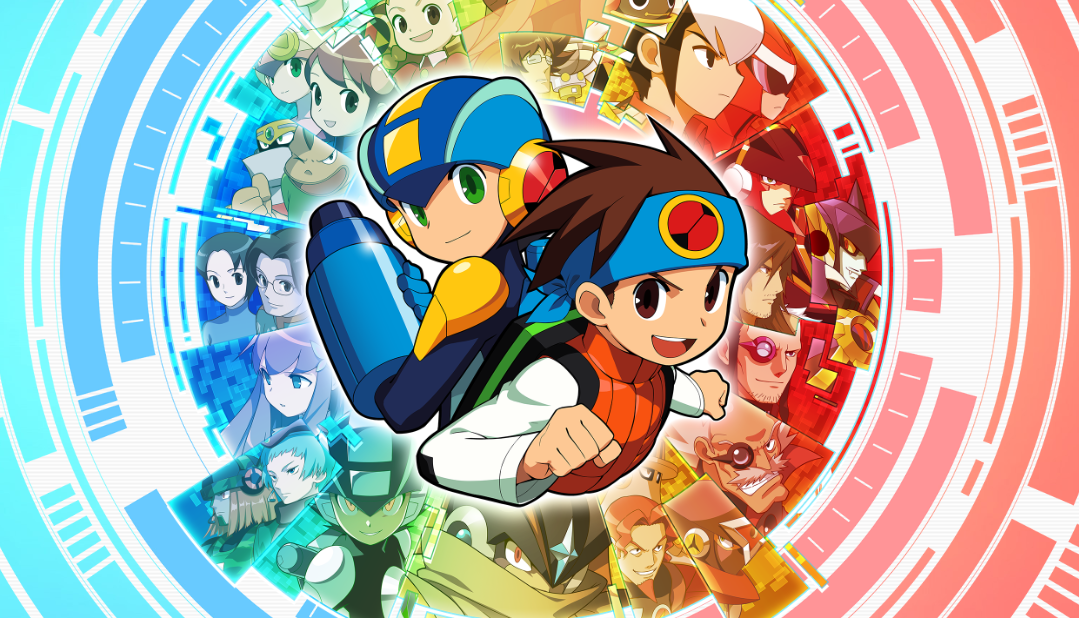
Capcom has added a disclaimer to both volumes of The Mega Man Battle Network Legacy Collection, a re-release of ten games in the spin-off strategy series, which warns players of "insensitive cultural depictions" at the start of the game. It does not specify what these are but, as soon as the warning was spotted on gaming forum Resetera, users began posting examples of what the game includes that probably falls under this description. The games' content has not been altered.
The full disclaimer reads: "Capcom values diversity and inclusivity within its games and its community. Please be aware the games in this collection may contain some cases of insensitive cultural depictions that are presented as originally created to preserve their authenticity." The comparison to the message that Warner Bros. now shows in front of its older cartoons is obvious.
The specific examples highlighted by Battle Network players include black characters that rap, an instance where protagonist Lan goes to Netopia (an approximation of America) and is immediately robbed by a black man, and another character in that city who tells you he prays to "my God, and the chicken he provides." It's clear from some of the dialogue posted that this element of the games is a crudely stereotypical view of black urban America, with boomboxes, basketball hoops, and characters who say things like "You just outta da crib, kid! Go suck your momma's milk!"
"There's also 'Netfrica' in Battle Network 4 where they all live in huts and worship an irrigation computer as their god," notes Resetera user Lori. "But nobody in their right mind plays BN4 to begin with."
The description of Netfrica on the Mega Man wiki reads: "People live in huts made from straw and mud. One of their customs is a search for a water god statue on the internet. Whoever discovers it would be a champion. Due to the hot climate and water shortage, natives also worship a 'water god' which is actually a water purifying system."
Opinion is split on whether adding a disclaimer goes far enough, or whether Capcom should have undertaken a more hands-on approach and changed or removed problematic elements of the games. Some feel the disclaimer is the only way to handle such issues, as it acknowledges the problems but leaves the game's content as-is for players to make their own judgements. Others think Capcom should have undertaken a re-translation of certain areas of the script, or removed certain content entirely, and claim the choice to sell the games like this is profiting from "anti-Black content".
There's a range of viewpoints on how to handle such material, and it's a wider cultural conversation than just games. The children's author Roald Dahl may not seem the most obvious bedfellow for Mega Man Battle Network, but is the most recent and high-profile subject of this ongoing debate: His publisher Puffin recently employed "sensitivity readers" that removed and re-wrote sentences in the new editions of Dahl's books to, for example, ensure Augustus Gloop was not described as "fat". The public backlash to this decision was enormous, with the publisher soon having to announce it would keep the original and unaltered books on sale.
"Clearly from reading these replies there really isn't a right answer," notes Resetera user Livewire. "If Capcom said nothing and released the games as is, people would be upset. If Capcom removed the content from the games, people would be upset. Capcom includes a statement acknowledging the bad content; people are upset."
It is nevertheless notable that Capcom is beginning to grapple with the problems contained in some of its older work. And it may well have an even bigger problem to tackle soon, following the success of Resident Evil 4 remake, which is how it can possibly remake Resident Evil 5: A game where the setting and premise were decried even at the time of release as stereotypically racist depictions of Africa. It won't be able to just stick a disclaimer on that one.







